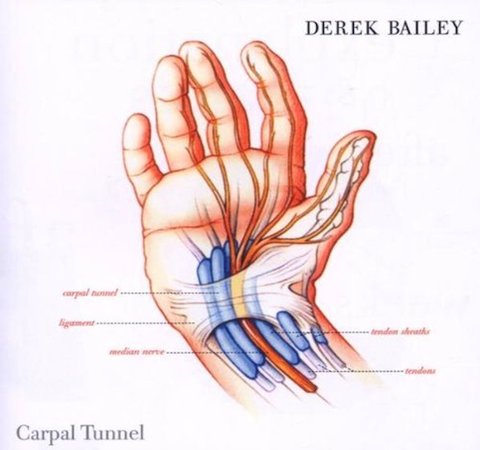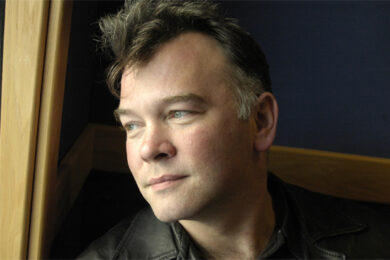13. Derek BaileyCarpal Tunnel

I did Derek Bailer on Celebrity Mastermind and won. Derek Bailey was a guy who, by his own admission, in the 50s and 60s called himself a creepy dance band musician, which means he was in little pick up jazz trios at tea dances. He was in the pit for variety shows like Morecambe and Wise and stuff, there’s a suspicion that he plays on Down Town by Petula Clarke. Then at 65, he seemed to have some reverse road to Damascus experience where he decided he wasn’t ever going to play any tunes ever again. He was part of a little well of people that you’d call European free improvisation, which is jazz without the tunes.
I don’t know how I heard it, but I heard a Derek Bailey record in the mid-90s called Guitar, Drums ‘n’ Bass, which was him improvising over drum and bass music that he’d heard on pirate radio, doing really weird truncated licks over it. So I started listening to all his stuff and it turned out he’d made hundreds of records, and every single one was different in virtue of the fact that it was improvised from the beginning to end. He ran his label, he kept his costs low.
I saw him on stage in about 1998 with Ruins, who were a Japanese band. And he was wondering around not really looking what he was doing, then he walked into the back of the stage and the guitar went ‘clang’, and people didn’t know whether it was a mistake. Then he did it again and again, so he made mistakes into a practice. One of the last records he made was called Standards in which he plays, in the most beautiful way, loads of pre-war jazz standards on an acoustic guitar.
Carpal Tunnel is a particularly good record. In the last year of his life, 2005 , he was misdiagnosed as having carpal tunnel, it turned out he’d got motor neurone disease and he died on Christmas day that year. The album’s got seven or eight tracks that are recorded two weeks apart, during which it’s becoming harder and harder for him to play, but he’s using his concentration and memory of playing to try to keep up to scratch. The weird thing about it is that it doesn’t sound too different from a lot of his records that he made when he was healthy, because he’d created an aesthetic whereby you’re forced to accept anything. So the fact that he perhaps couldn’t quite do it, didn’t really matter anymore.


